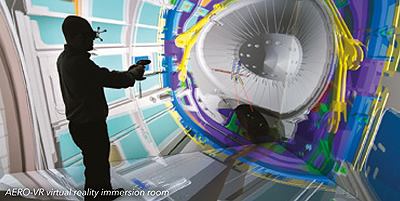 INCAS - National Institute for Aerospace Research 'Elie Carafoli' is the leading research establishment in aerospace sciences in Romania, with more than 60 years tradition in aerospace engineering, fl ow physics and applied aerodynamics. Using state-of-the-art technologies and unique infrastructure, INCAS has been involved in all major national aeronautical projects for civil and military areas. The insitute is currently acting as a major player in EU policy for R&D development under FlightPath 2050 vision and the Horizon 2020 program, as full member of EREA and as founding member of IFAR.
INCAS - National Institute for Aerospace Research 'Elie Carafoli' is the leading research establishment in aerospace sciences in Romania, with more than 60 years tradition in aerospace engineering, fl ow physics and applied aerodynamics. Using state-of-the-art technologies and unique infrastructure, INCAS has been involved in all major national aeronautical projects for civil and military areas. The insitute is currently acting as a major player in EU policy for R&D development under FlightPath 2050 vision and the Horizon 2020 program, as full member of EREA and as founding member of IFAR.
An interdisciplinary research group is operating INCAS airborne and ground based research infrastructure for land and atmospheric observations named ATMOSLAB. INCAS currently operates a fl eet as follows:
- - One Hawker Beechcraft King Air C90 GTx aircraft equipped with in-situ instrumentation for cloud and aerosol measurements and an airborne topographic laser scanning system, with an optional photo/thermal camera.
The LiDAR and aerial photography data analysis is used to obtain detailed maps for flood prevention, protection and mitigation, archaeological studies, forest inventory, airport safety and other applications.
- - Two Britten-Norman BN-2 B26 aircrafts – the first being equipped for in-situ gas and aerosol measurements (to be equipped with an nadir port) while the second aircraft is in process for integration of a Selex SeaSpray 5000E SAR radar.
- - One UAV with a maximum research payload of 70 kg.
Another direction of research is focused on improved prediction methods and technologies for lower noise and emissions, and higher performance for high-lift devices using its wind tunnel infrastructures.
While the take-off engines are still the dominant noise source, the airframe noise is as signifi cant as the engine noise on approach when engines are operating at low thrust. The main components of the airframe noise are the high lift devices and the landing gears, making it essential to identify the components that are mostly responsible for the fl yover noise emissions and correlate the design of the noise control devices to those identifi ed gear components.
The institute's airborne laboratory and its subsonic and tri-sonic wind tunnel infrastructures, are complemented by its AERO-VR laboratory, an immersive virtual reality laboratory comprising four components: an immersive 3D virtual laboratory with haptic systems, HPC system with collaborative work environment, data room and 3D scanning system.
The laboratory allows the development of virtualization capabilities for aerodynamic structures, defining and validating the configuration of the aircraft or integral components, in the initial phases of development (preconcept, statistical data acquisition and experimental wind tunnels).
In the future INCAS plans to cover niche areas such as: 3D geodesy and surveying applications, analysis of pollution dispersion through 3D representation of volumetric data and air traffic management through enhanced representation of 3D trajectories obtained by collecting GPS data from UAV for ensuring reduced fuel consumption and also reducing CO2 emissions.
INCAS' concern regarding the pressing environmental issues of today is becoming increasingly important in the expansion of its research and development programs that will hopefully drive change and inspire solutions for the future.
CONTACT DETAILS
National Institute for Aerospace
Research 'Elie Carafoli' – INCAS
Bucharest
Tel: +40 21 434 00 83
Fax: +40 21 434 00 82
E-mail: incas@incas.ro
Web: www.incas.ro